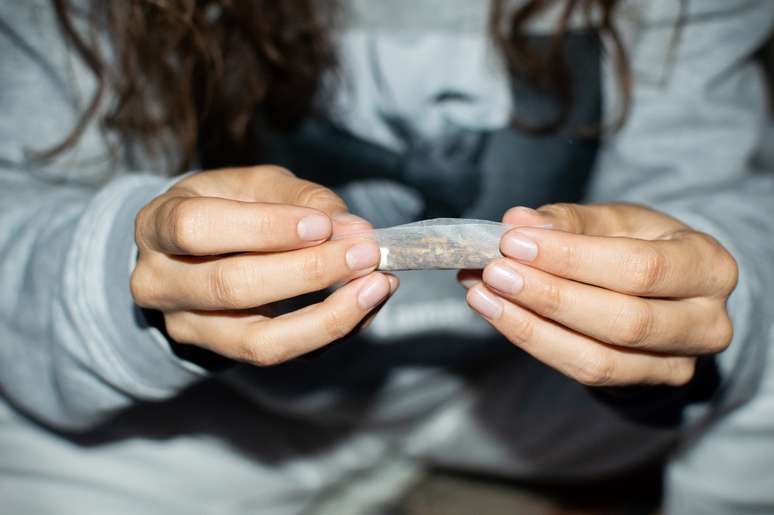What are the main reasons that push teenagers to smoke marijuana? A study that has followed North American students over the past six decades reveals an increase in demand for the drug to address the usual challenges of daily life.
The data shows that the number of high school seniors using marijuana to alleviate difficulties they face in their lives grew significantly from 1976 to 2022. The work assessed nearly 125,000 young people and was published in Addictive behavior magazine.
The experts verified the main reasons for marijuana use among adolescents in the year preceding the survey. The need to relax is the reason given by the majority, 53%. Running away from problems was the cause mentioned by 25% of students, around 18% used it to manage anger and frustration and almost 11% smoked to cope with their routine.
In summary, the findings suggest that marijuana use may occur as a way to reduce daily stress, to attempt to resolve emotional distress, to escape problems, or to support common daily responsibilities.
Changes in risk perception
We know that whenever someone uses some kind of substance that has an effect on the brain to relieve negative emotions and sensations or to reduce stress and be able to deal with difficulties and problems, the risk of more complicated patterns of use (such as abuse and addiction) an increase may occur, leading to a number of health threats.
When this use occurs frequently during adolescence, a phase in which a series of neurobiological, behavioral and self-esteem adjustments occur, the associated risks also increase (less satisfaction with life, changes in brain development, cognitive difficulties and learning problems) . . Not surprisingly, even in states and countries where marijuana use is legal, consumption by minors remains prohibited.
In addition to considering marijuana (after alcohol) the most consumed substance by adolescents in many Western countries, the perception towards it has changed significantly with the legalization of recreational and medicinal use in several parts of the world. This may help to understand why more and more young people are turning to drugs to try to cope with difficulties in their lives.

Fear and anxiety can help you. see how
How to face the challenges?
This scenario makes us reflect on the importance of young people working on frustrations, limitations, stress and distress in other ways. Wouldn’t it be important for them to address these common problems in contemporary life with their own emotional resources, without having to resort to marijuana? Talking about difficulties, sharing distress with peers, and asking for help when needed are practical resources that can increase young people’s resilience.
For this very digital generation, less accustomed to interpersonal interactions, the lack of social skills can make it more complicated to talk about how they feel, but this process cannot be seen as impossible. Yes, they can learn to develop these skills.
It is clear that many today are faced with real problems of anxiety and depression that need to be addressed by a specialist and treated with therapy and even the use of drugs for a limited period. But leaving teenagers free to ease their pain and suffering with alcohol or marijuana will never be the best solution.
An opportunity for personal growth
At a time when so many changes and transformations are taking place, without the need to resort to substances to deal with difficulties, anxiety and anguish, it can be an important opportunity for these young people to develop their social and emotional learning, which will be so important throughout the life.
This process of personal growth can also improve self-esteem and self-confidence, as well as protect adolescents from a variety of losses that can be linked to early marijuana use, such as abuse, addiction, increased anxiety disorders and depression, memory impairment and even psychotic symptoms.
Here we return to the topic of the importance of talking about drug education at home, at school and in the media, a topic that has been swept under the carpet in recent years. Shall we resume this discussion once and for all?
*Jairo Bouer is a psychiatrist and communicator and writes weekly for Terra Você.
Source: Terra
Ben Stock is a lifestyle journalist and author at Gossipify. He writes about topics such as health, wellness, travel, food and home decor. He provides practical advice and inspiration to improve well-being, keeps readers up to date with latest lifestyle news and trends, known for his engaging writing style, in-depth analysis and unique perspectives.








